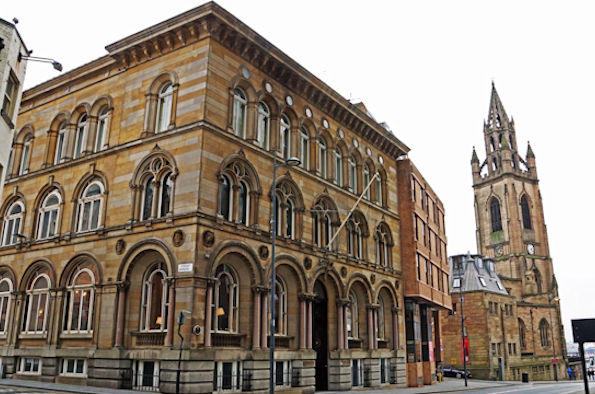
Science in the Snug: The geology of carbon capture and storage (CCS) - a crucial step in the long battle with climate change
- Andy Harrison
- Admission: Complimentary
- Book now
Add this event to my calendar
Click on "Create a calendar file" and your browser will download a .ics file for this event.
Microsoft Outlook: Download the file, double-click it to open it in Outlook, then click on "Save & Close" to save it to your calendar. If that doesn't work go into Outlook, click on the File tab, then on Open & Export, then Open Calendar. Select your .ics file then click on "Save & Close".
Google Calendar: download the file, then go into your calendar. On the left where it says "Other calendars" click on the arrow icon and then click on Import calendar. Click on Browse and select the .ics file, then click on Import.
Apple Calendar: The file may open automatically with an option to save it to your calendar. If not, download the file, then you can either drag it to Calendar or import the file by going to File >Import > Import and choosing the .ics file.
The scientific basis for climate change being caused by ever increasing anthropogenic CO2 is now well established. Farming, forestry, production of ever-greater quantities of meat, plus agricultural malpractice account for up to one third of human CO2 emissions. Cement and concrete manufacture for never-ending urbanisation also accounts for a significant amount of CO2. However, human sources of atmospheric CO2 are dominated by the burning of coal, oil and gas for electricity generation, heating and transport.
As a society, we have uncomfortable choices to make about population control (i.e., reduction) versus never-ending growth, more efficient diets and food supplies, sources of energy, and energy usage. Inertia is a choice that seemingly will lead to global catastrophe. One major initiative that needs to accelerate to help mitigate climate disaster is the geological (subsurface) disposal of CO2 that results from the centralised burning of fossil fuels: this is known as carbon capture and storage (CCS).
CCS involves the collection of CO2 for exhaust streams followed by injection into the deep subsurface where it will remain trapped for millions of years. CCS is not a fanciful concept because equally volatile natural gas (e.g. methane) demonstrably has remained in geological traps for 100’s of millions of years. CCS has already commenced at a few sites worldwide, with the CO2 injected either into old oil or gas fields or into deep saline aquifers.
This talk will focus on the geological aspects of CCS that demand consideration, including measuring and predicting rock strength at the injection site to ensure avoidance of fracturing the host rock (which would lead to that unpopular process: fracking!). The talk will also cover use of the vast amount of subsurface petroleum geoscience (geology, geophysics, geochemistry, petrophysics) data generated by the oil and gas industry that can be used to identify and characterise optimum sites for CCS. The talk will end by detailing ongoing work on the ACORN project which aims to be the UK’s first CCS project, offshore Morayshire in NE Scotland.
The lecture will take place at 5:45pm on Wednesday 26 February at the Racquet Club, Hargreaves Buildings, 5 Chapel St, Liverpool L3 9AG. Tickets are free but places are limited so book your place today to avoid disappointment.
Book now - https://alum.liverpool.ac.uk/online-event-registration)
